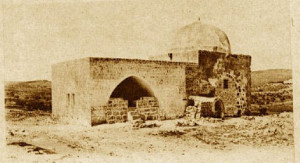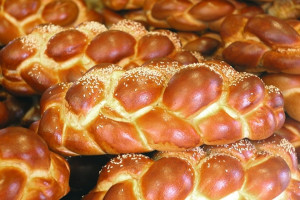Mother Power: Eshet Chayil (Part 15)
By Sara Esther Crispe: January 22, 2016: Category Decoding the Tradition, Inspirations
Hayita kaniyot socher, mi merchak tavih lachmah
“She is like a merchant ship; she brings her bread from afar.”
 A few years ago I spoke with a commander in the Israeli army and he shared something I will never forget. He was speaking about the power of the Jewish woman and how in the middle of battle, when soldiers lives are on the line, or worse, when they are wounded and suffering, they all cry out for their mothers. No matter how strong, how brave, how tough, screams for one’s Ima pierce through everything.
A few years ago I spoke with a commander in the Israeli army and he shared something I will never forget. He was speaking about the power of the Jewish woman and how in the middle of battle, when soldiers lives are on the line, or worse, when they are wounded and suffering, they all cry out for their mothers. No matter how strong, how brave, how tough, screams for one’s Ima pierce through everything.
The Jewish people have been blessed with four mothers. The Matriarchs are Sarah, Rebecca, Rachel and Leah. But there is something unique about Rachel. She is the one lovingly referred to as Mama Rochel (our mother, Rachel). For it is Rachel who sacrificed herself in the greatest of ways for her children. And not just her physical children who were then, but for all of her children through the generations that have come and will come.
It is taught that when Rachel passed away, her husband, Jacob, buried her on the side of the road outside of the city of Bethlehem. He did so because he received Divine guidance that this is where she should be so that she could offer support, comfort and love to all those who would pass. The commentaries explain that Rachel so desperately pleaded for the return of the Jewish people to Israel and it was in the merit of her bitter weeping for her children that her children were returned to their borders.
Beautifully, the Hebrew word for ‘borders’ is gevul and it is numerically equivalent to 41 which is the same numerical equivalence of the word for mother, ‘eim.’ Through exemplifying what it means to be a mother, the Jewish children return to their ultimate mother, their holy land. Another powerful allusion is that the day of her passing is the 11th of the month of Cheshvan which is exactly 41 days from the start of the Jewish New Year on Rosh Hashana. Therefore the day of her passing truly represents Jewish Mother’s Day.
Rachel is the woman referred to in this 5th verse of Eshet Chayil. She is the one who is like that merchant ship, bringing the bread from afar. In the last article we focused on how the ship is the one that is simultaneously both above and below the water and is able to be there to rescue those who would otherwise sink. So too is Rachel. By being buried on the side of the road she is there for all those who pass and yet she is not there because she is lost or stranded but because she needed to be there
Her entire life embodies self-sacrifice and dedication. It was Rachel who wouldn’t allow her sister Leah to be humiliated when their father tried to trick Jacob into marrying Leah. So she told her the secret code that she and Jacob had created so that this very incident could not have happened. Rachel knew it meant temporarily giving up on the love of her life, but she epitomized empathy and had the faith and patience to know that in the right time things would work out. And it was Rachel who died during childbirth to her son Benjamin. The ultimate sacrifice of a mother as she gave life to the next generation.
The verse not only speaks about the ship in the sea but continues about bringing bread from afar. The concept of faith is connected to bread. Previously we spoke of how bread represents money and our sustenance, which at its essence requires pure and complete faith. Our money is considered a gift from Above to be cherished and used properly, and is not the sole outcome of our own doing.
The process of making bread requires patience and recognizing that we can only put in the right ingredients, but the ultimate outcome is beyond our control. This is why when challah is made–the bread which his eaten on Shabbat and holidays–a piece is separated before the dough is cooked. That piece, which is actually called “challah,” is the reminder and the acknowledgement that all of our food (spiritual, emotional and physical) comes from Above and is a gift. We must never lose sight of this.
 This is the reminder that Rachel gives the Jewish people. She is the ship in the sea, buried outside of Israel so that she can offer support to those who pass. So that she can remind them that they are never alone. And so she can be that source of faith, patience and encouragement that the Jewish people will return to the Land of Israel.
This is the reminder that Rachel gives the Jewish people. She is the ship in the sea, buried outside of Israel so that she can offer support to those who pass. So that she can remind them that they are never alone. And so she can be that source of faith, patience and encouragement that the Jewish people will return to the Land of Israel.
And during the time they remain in exile, she remains with them. Truly bringing them their bread from afar. For after all, she is buried on the side of the road, outside of the city of Beit Lechem (known as Bethlehem). Literally the “House of Bread.” She creates a home, where everyone feels welcome and safe, specifically where there is no actual home. She teaches that home is truly where the heart is and it is a home of bread, a home that acknowledges where our blessings come from and recognizes that the way to survive all of the challenges we face is through trust and faith.
In Part 16 we will discuss how the letter of the verse, the Hei, embodies the concept of giving, receiving and actualizing potential.
http://www.interinclusion.org/inspirations/the-garments-of-the-soul-eshet-chayil-part-16/
Mother Power: Eshet Chayil (Part 15),














;)
;)
;)
;)
;)
;)
;)
;)
;)
;)
